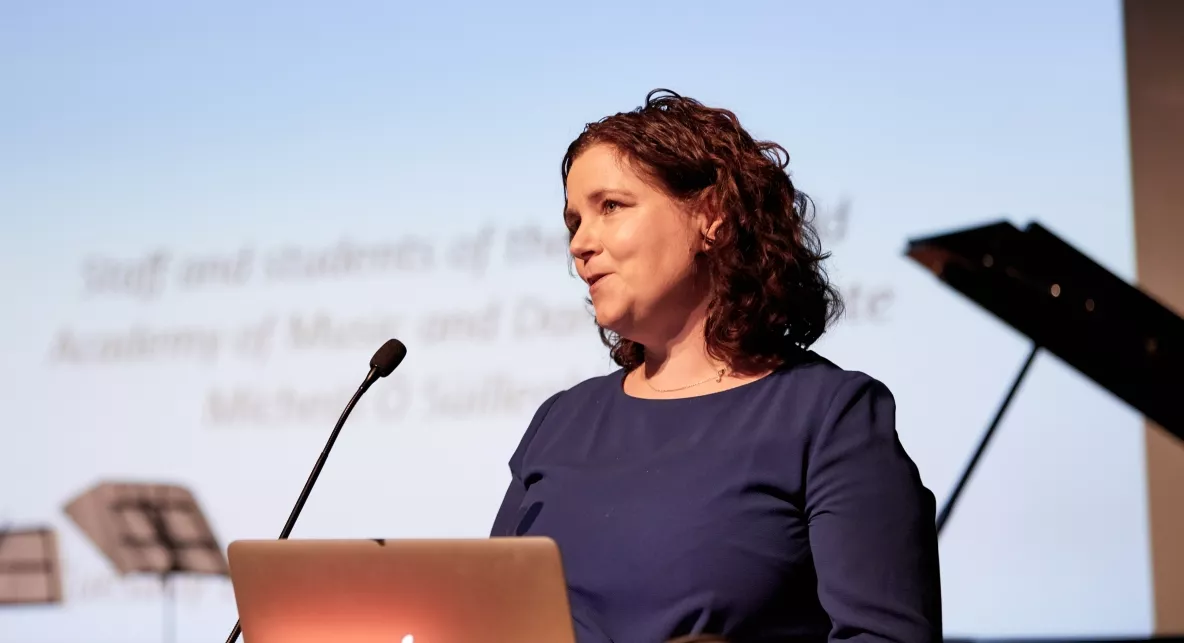

Academics from University of Limerick joined with leaders and policymakers in higher education and enterprise to explore the role of Recognition of Prior Learning in upskilling, reskilling, and retaining key members of the workforce.
The Recognition of Prior Learning (RPL) project, which UL is a partner in, held an enterprise-focused ‘think in’ event last Thursday – the first time that senior leaders in higher education and policymakers have come together with enterprise leaders to discuss how RPL can meet upskilling and re-skilling needs.
A dedicated online resource for learners, businesses, and higher education institutions was launched at the event.
The website is a jumping-off point for anyone seeking to engage with RPL as a route into higher education and will provide businesses and enterprise with an understanding of how RPL can benefit workers.
With RPL, a learner can get recognition from a higher education institution for the prior learning they have done in work, life and the community which in turn can provide a pathway to and through higher education. Using RPL, a higher education institution gives recognition for what someone already knows, understands and can do prior to, for example, starting on a programme or module.
This eliminates the duplication of learning, meaning that they don’t have to relearn things they already know.
“Recognition of Prior Learning has been with us on an ad hoc basis for many years,” according to Grace Edge, National Co-ordinator of the RPL in Higher Education project.
“Over the course of this five-year project, fourteen higher education institutions are working together with employers and stakeholders to embed RPL in our policies and practices and promote it to a diverse audience.
“This Think-In is all about bringing higher education leaders and policymakers together with enterprise to explore how we can use RPL to increase access to higher education programmes and progression opportunities to meet current skills needs.
“We want to be able to enhance our ability to work with businesses collaboratively to create professional development opportunities for staff, develop useful tools, resources, and materials to enable that, and to help them retain and build on their workforce’s existing knowledge and skills.”
Dr Sandra Joyce, Executive Dean of UL’s Faculty of Arts, Humanities and Social Studies is UL’s institutional lead for RPL, working with Professor Ross Anderson Associate Vice President Academic Affairs.
Dr Joyce – who attended the think-in in Dublin last Thursday – said that a UL focused RPL website will shortly go live and there are plans to further raise the profile of RPL across the institution, as well as to provide staff training in this area.
“The goal is to encourage and increase pathways to the University for people who have a wide variety of skills and competencies that can be recognised in terms of learning outcomes of programmes of study. This is being achieved by working with enterprise and other partners, something that UL has already been doing really well for many years,” explained Dr Joyce.
“I was delighted to be part of the RPL for Enterprise ‘Think-In event and I am particularly delighted that Dr Yvonne Delaney, Director of the Management Development Unit at KBS, presented at the event with Peter Kelly, CEO of Glounthaune Management Services.
“This helps to showcase the excellent work that UL is leading on in terms of RPL for enterprise and was a significant contribution to the Dublin event,” Dr Joyce added.
Claire McGee, Head of Education and Innovation Policy at Ibec said the Think In was a valuable opportunity to build on and expand engagement between business and enterprise and higher education institutions.
“Staff hiring and retention is a huge issue for employers. In the ‘war for talent’, RPL can help employers to develop from within and retain employees through contributing to career progression, whilst also boosting employee motivation, confidence and self-esteem.
“This is a pivotal time for business in Ireland as we deal with the twin transitions of climate change and digitalisation, amplified by shifting demographics, global migration and displacement, and the fallout from Covid and Brexit. It is therefore critical that we build resilient and empowered communities and workplaces which not only survive but thrive in this context of continued change and uncertainty.
“For that, we need people from all walks of life to engage more frequently in higher education and having their prior learning recognised means they can build on what they already know, without having to ‘start from scratch’.
“Today we heard great examples where RPL helped employees and enterprise save time and money in obtaining qualifications. When RPL is done at scale, with cohorts of employees, we see real potential to address skills needs more effectively and efficiently. The learning from today clearly demonstrates that RPL is not a ‘nice-to-have’ or ‘optional extra’, rather an essential component of an accessible, flexible and responsive higher education system.”
Graduate and Professional Studies
+353 (0)61 234377
University of Limerick, Limerick, Ireland
Contact Us | Download Prospectus | Sign up to stay informed | Quality and Feedback